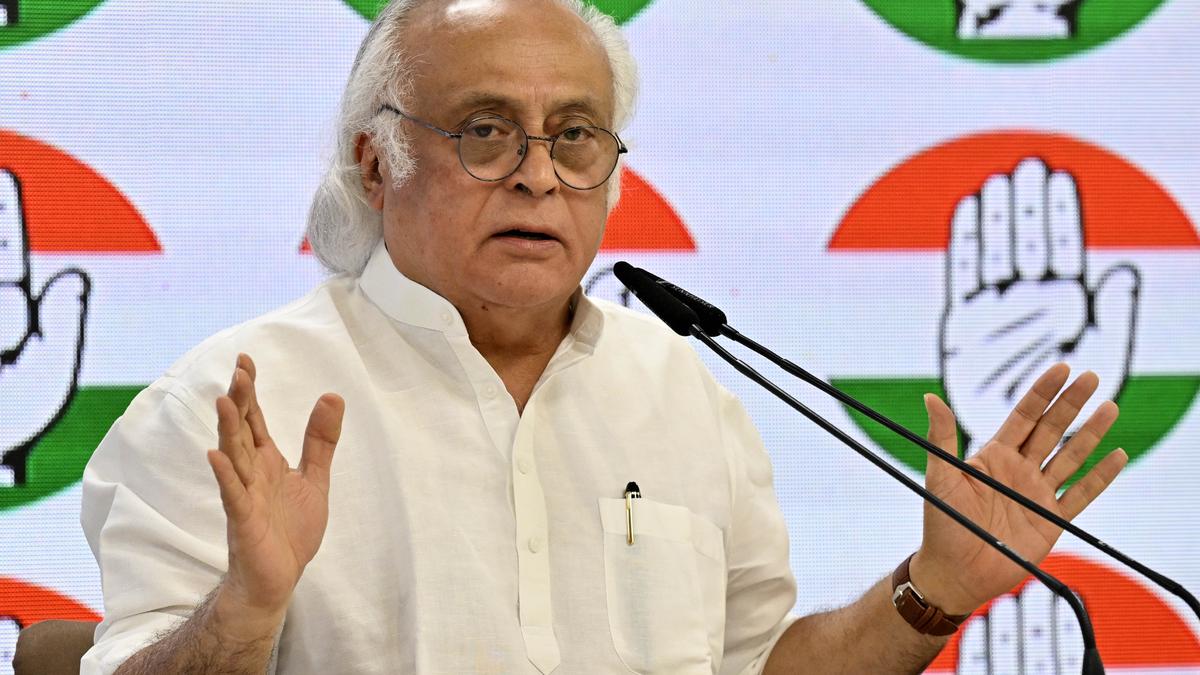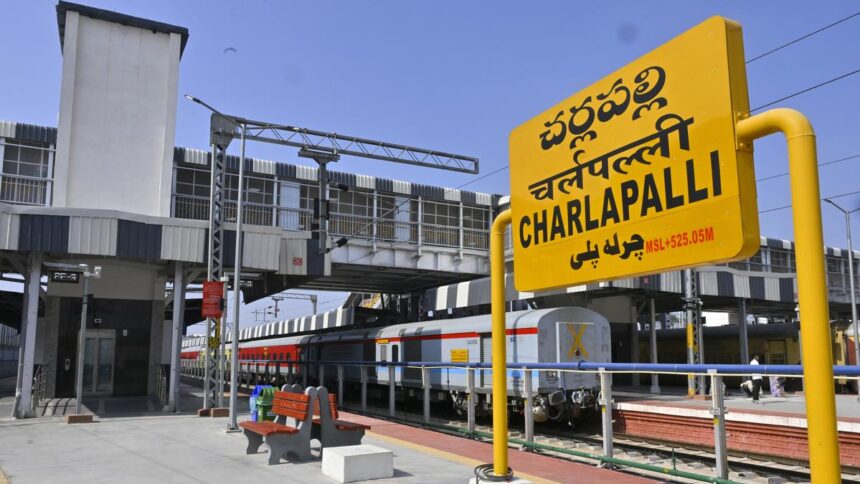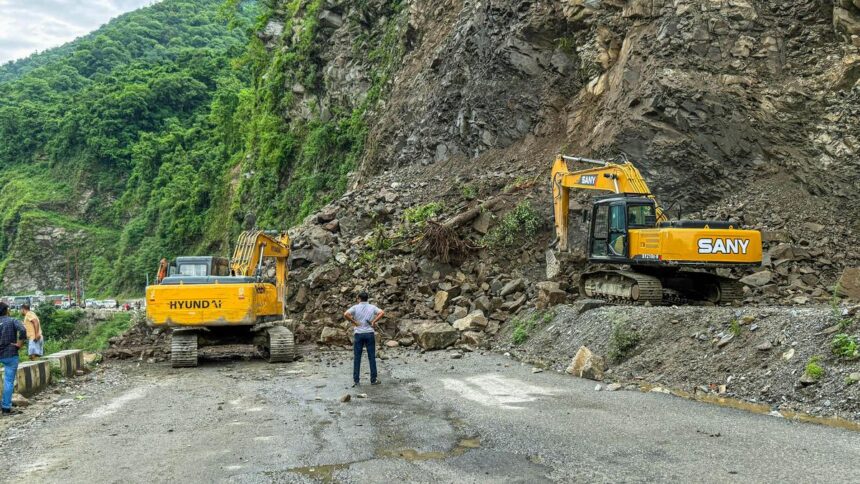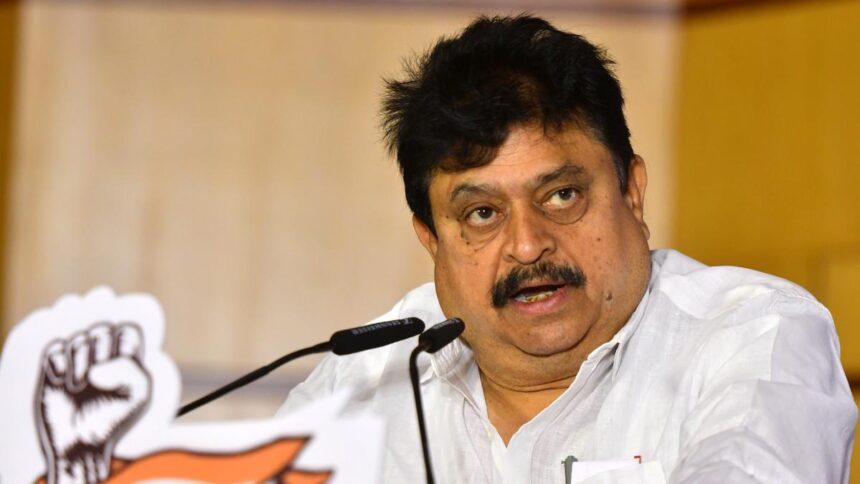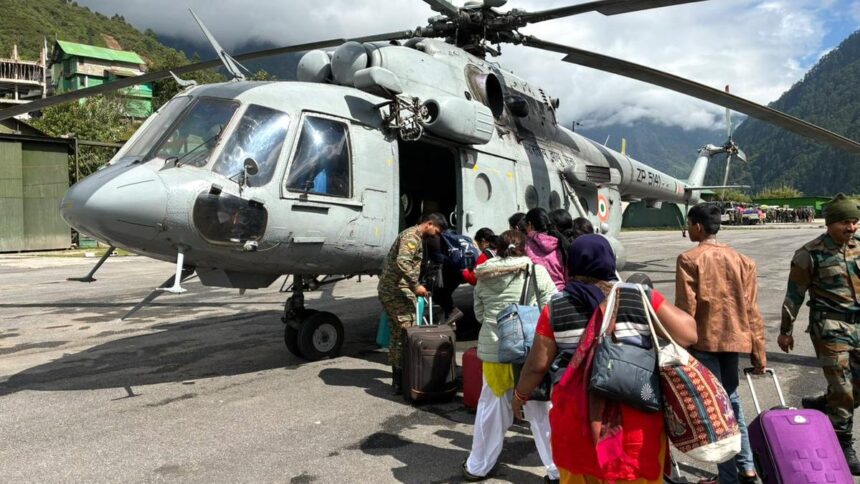
Congress leader Jairam Ramesh posed a series of questions on social media regarding the 2020 Galwan standoff against China. File
| Photo Credit: The Hindu
The Congress on Monday (August 4, 2025) said every patriotic Indian has sought answers on China since the 2020 Galwan incident but the Modi government has chosen to obfuscate and hide the truth with its policy of “DDLJ — deny, distract, lie, and justify”.
The opposition party also alleged that the Modi government is responsible for the biggest territorial setback India has faced since 1962, and accused it of pursuing “normalisation” with a hostile China because of its cowardice and misplaced economic priorities.
The Congress’s attack on the government came on a day the Supreme Court censured Leader of Opposition in the Lok Sabha Rahul Gandhi over his alleged derogatory remarks about the Indian Army during his Bharat Jodo Yatra. The apex court, however, stayed the proceedings initiated in the matter against Gandhi before a Lucknow court.
The top court told Mr. Gandhi, “How do you get to know that 2,000 sq km of Indian territory has been occupied by Chinese? Were you there? Do you have any credible material?”
Congress general secretary in-charge communications Jairam Ramesh said ever since 20 brave soldiers were martyred in Galwan on June 15, 2020, every patriotic Indian has sought answers.
“Yet instead of providing answers, the Modi government for the past five years has chosen to obfuscate and hide the truth with its policy of ‘DDLJ — deny, distract, lie, and justify’,” he said.
In a post on X, Mr. Ramesh went on to ask a series of questions. “Why did the Prime Minister give a clean chit to China saying ‘Na koi hamari seema mein ghus aaya hai, na hi koi ghusa hua hai‘ on 19 June 2020, only four days after our soldiers heroically sacrificed their lives for the country in Galwan?” Mr. Ramesh said.
“Chief of Army Staff General Upendra Dwivedi has said: ‘We want to go back to the status quo of April 2020’. Does the withdrawal agreement of 21 October, 2024, take us back to the status quo?” he said.
Are Indian patrols not required to take Chinese concurrence to access their Patrolling Points in Depsang, Demchok and Chumar, whereas earlier they were able to freely exercise India’s territorial rights, Mr. Ramesh added.
Are Indian patrols not prevented from accessing their Patrolling Points in Galwan, Hot Spring and Pangong Tso by “buffer zones” that lie predominantly within the Indian claim line, he further asked.
“Was it not widely reported in 2020 that 1,000 sq km of eastern Ladakh had come under Chinese control, including 900 sq km in Depsang? Did the SP of Leh not submit a paper at the annual Director General of Police Conference in which he stated that India had lost access to 26 out of 65 Patrolling Points in eastern Ladakh?” Mr. Ramesh said.
Is it not true that imports from China are booming, especially of electronics, electric batteries, and solar cells, and that important sectors like telecom, pharmaceuticals, and electronics are critically dependent on Chinese imports, he asked.
Is not true that the trade deficit with China reached a record $99.2 billion in 2024-25, Mr. Ramesh questioned.
“Is it not true that the Modi government is pursuing ‘normalisation’ with a country that played a crucial role in Pakistan’s military operations during Operation Sindoor, supplying weapons systems such as the J-10C fighter and PL-15 air-to-air missile and providing ‘live inputs’ into Indian military operations as stated on 4 July, 2025; by Deputy Chief of Army Staff Lt General Rahul R Singh?” he said.
“The fact of the matter is that the Modi government is responsible for the biggest territorial setback India has faced since 1962, and it is pursuing ‘normalisation’ with a hostile China because of its cowardice and misplaced economic priorities,” Mr. Ramesh said.
Published – August 04, 2025 03:25 pm IST





